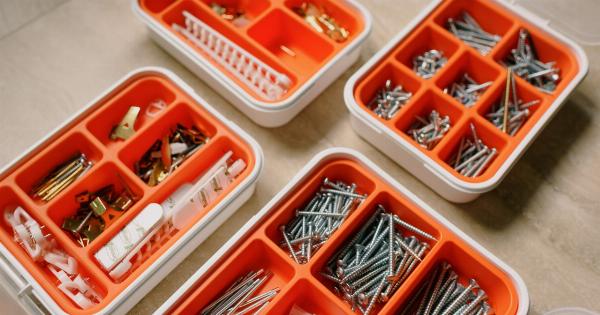Being single can sometimes feel frustrating and confusing. You may be wondering why you haven’t found love yet, despite your best efforts. But fear not, because new research has shed light on the potential reasons behind your single status.
By exploring these findings, you can gain valuable insight into your own dating experiences and take steps towards finding a fulfilling romantic relationship.
The impact of attachment styles
One of the key factors influencing an individual’s singleness is their attachment style. Attachment theory suggests that the way we form emotional bonds with others in childhood affects our relationships in adulthood.
People with an anxious or avoidant attachment style often struggle to form secure, lasting connections with romantic partners.
Unrealistic expectations and the paradox of choice
In today’s modern dating landscape, we are exposed to an overwhelming number of potential partners through dating apps and online platforms. This abundance of options can lead to analysis paralysis and unrealistically high expectations.
Research has shown that having too many choices can make it harder for individuals to commit to a single partner, resulting in prolonged periods of singleness.
Fear of vulnerability and intimacy
Another reason why you may still be single is a fear of vulnerability. Opening yourself up emotionally and allowing someone to truly see you can be intimidating.
Fear of rejection, past heartbreaks, or a lack of trust can all contribute to this fear and prevent you from forming deep connections. It’s important to acknowledge and address these fears to create an environment where love can flourish.
Unresolved past traumas
Previous traumas, such as abusive relationships or childhood experiences, can have a lasting impact on our current ability to form healthy relationships.
Unresolved traumas may lead to self-sabotaging behaviors, patterns of choosing unavailable partners, or difficulties in trusting others. By seeking therapy or professional help, you can work through these past traumas and move towards healthier relationship patterns.
Compatibility and shared values
Often, people overlook the importance of compatibility and shared values when searching for a partner. Physical attraction and chemistry are undoubtedly important, but sustainable relationships require more than just superficial connections.
By prioritizing compatibility in terms of values, goals, and lifestyles, you can increase your chances of finding a compatible long-term partner.
Limited social circles and opportunities
Expanding your social circles and exploring new opportunities can significantly increase your chances of meeting someone special.
If you find yourself consistently surrounded by the same group of people, it may be time to branch out and join new clubs, attend social events, or try online dating. Broadening your horizons allows you to encounter a diverse range of individuals who may have the potential to become romantic partners.
Low self-esteem and self-confidence
Low self-esteem and a lack of self-confidence can hinder your dating success. If you don’t believe in your own worth and value, it becomes difficult for others to see it as well.
Working on building your self-esteem through self-care, personal growth, and positive self-talk can make a significant difference in your dating life.
Lack of proactive approach
Being proactive in your dating life is essential. Simply waiting for love to come knocking on your door might not yield the desired results.
Taking an active role in seeking out potential partners, whether through dating apps, social events, or mutual connections, increases your chances of finding love. Remember, finding a partner requires effort, patience, and a willingness to put yourself out there.
Incompatibility with modern dating norms
The rise of modern dating norms, such as casual hookups and non-committal relationships, may not align with everyone’s desires for a serious and committed partnership.
If you find yourself struggling with these changing dating dynamics and feeling out of place, it’s important to communicate your needs and intentions clearly. Seeking like-minded individuals who share your dating goals can help increase your chances of finding a compatible partner.
Timing and luck
Lastly, sometimes being single simply comes down to timing and luck. Despite putting in the effort and taking proactive steps, you may not have met the right person yet.
Remember that finding a compatible partner is a combination of timing, luck, and personal growth. Be patient, continue working on yourself, and trust that the right person will come into your life at the right time.
Conclusion
Understanding the potential reasons behind your single status can provide valuable insights into your dating journey.
By addressing attachment styles, managing expectations, overcoming fears, working through past traumas, prioritizing compatibility, expanding your social circles, improving self-esteem, taking a proactive approach, adapting to modern dating norms, and acknowledging timing and luck, you can enhance your chances of finding love. Remember, being single is not a reflection of your worth, but an opportunity to grow, learn, and discover what you truly want in a partner.





























